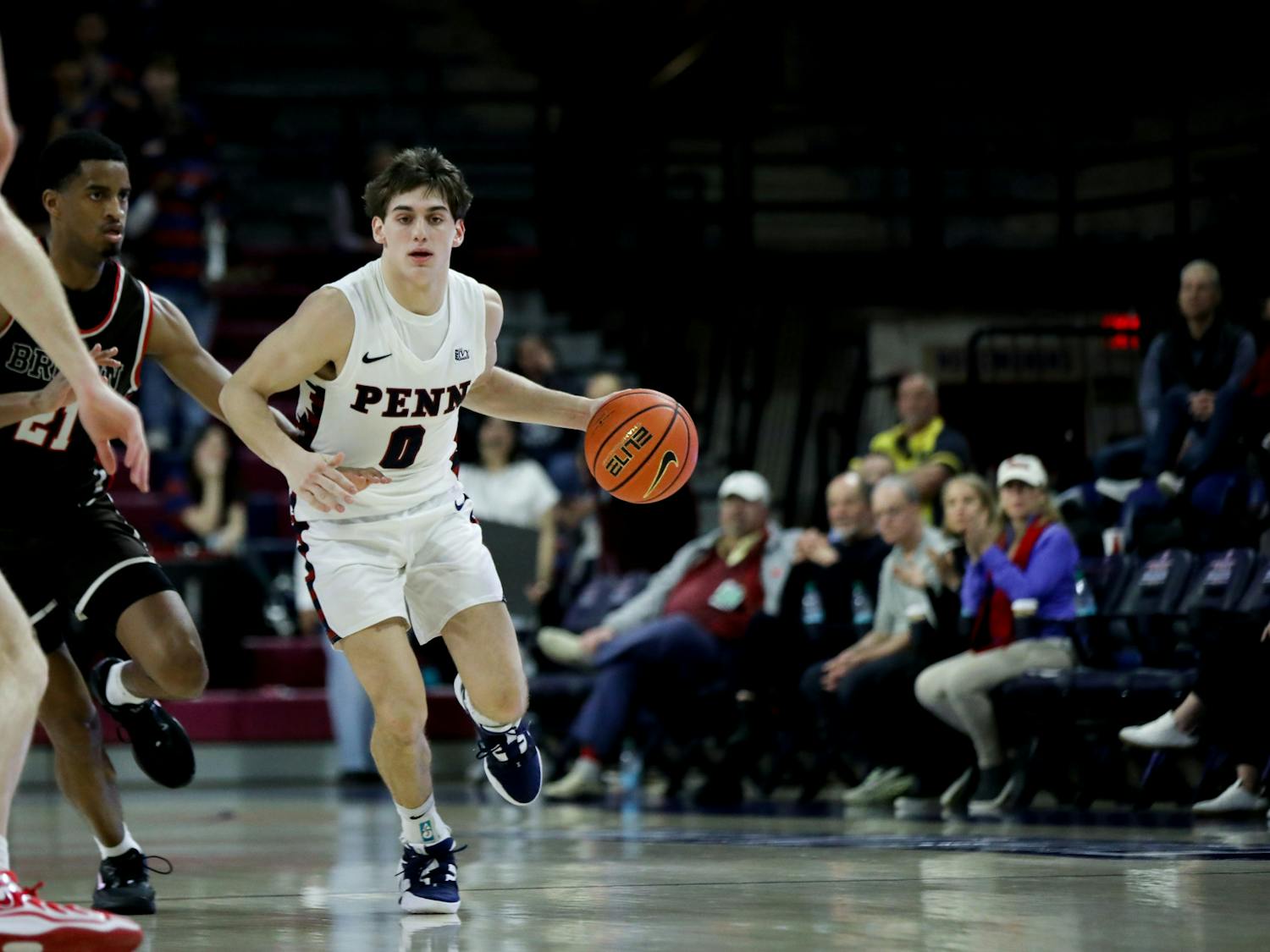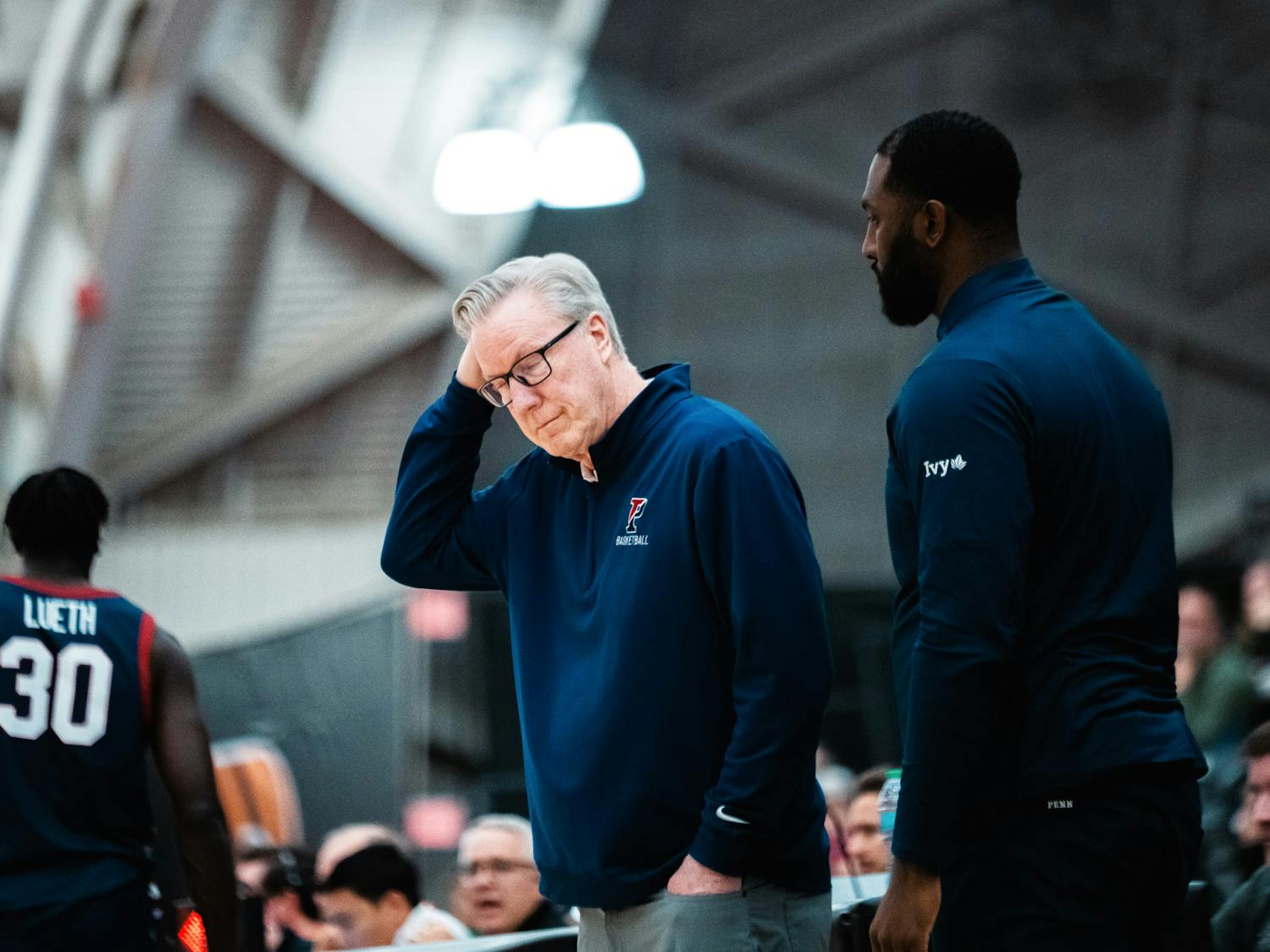Most people's moms do not yell to them out the window to finish up their game of squash and come in for dinner.
In addition to it being rather odd to have an outdoor squash court in the backyard, the truth is that most American youths do not gravitate towards the game like they do football, baseball or any other sport native to America.
One reason for this may be that squash courts are less accessible than other sports facilities, as they are usually found within country clubs that have tight restrictions on membership.
"Squash is different," Penn senior Richard Repetto noted. "It's not like just picking up a basketball and going down to the city court to play."
Despite its relative inaccessibility and elitist reputation, the sport has attracted a number of extremely talented players, many of whom play on Penn's nationally ranked team.
Repetto himself first became involved with the game under the influence of his father, Gus, who took him to Atlantic City Country Club, the only place in the area with squash courts that would allow women and children to gain membership.
Soon enough, what had begun, as the elder Repetto described it, was "an opportunity to put him on the court with a little racket and let him have fun," had become a chance for him to really develop his talent.
Repetto played in his first tournament at age nine and eventually took such a strong interest in squash that he would routinely stick around after lessons and hit balls to himself for over an hour.
Soon, Repetto's parents were making the hour-plus trip to Philadelphia twice a week so that their son could receive adequate lessons for a player of his caliber.
Making a similar commute to the City of Brotherly Love was current teammate Eric Bardawil, who, despite being introduced to squash much later in life, immediately embraced it and began taking lessons.
Bardawil grew up in Allentown, Pa., where playing squash was not really an option, as there were very few courts in the area.
He first started playing in his junior year of high school, after a new teacher decided to form a squash club. This turn of events came at an opportune time, as Bardawil had been contemplating quitting the soccer team for some time before the game of squash fell into his lap.
"It came absolutely out of the blue," Bardawil's mother Karen said. "I always thought that if he would play anything it would be soccer."
Bardawil's transition to squash proved to be tremendously beneficial, however, as it got him acceptance into Franklin & Marshall. After playing there for a year -- and getting crushed by Penn -- he was able to transfer and become a member of the Quakers himself.
Upon joining Penn's squash team, Bardawil found himself at a slight disadvantage competing for a spot on the ladder with players like Repetto who started honing their game before hitting puberty.
"I'd probably be a little better if I started playing earlier," he admitted.
Nevertheless, he has maintained his position on Penn's ladder and has succeeded at the college level.
Perhaps if Bardawil had discovered his passion for squash a few years earlier he would be contemplating playing professionally after college like another teammate, Gilly Lane.
Lane grew up in Chestnut Hill, Pa., a place he described as a "hotbed of squash." As a result, Lane did not face the same geographical obstacles as Repetto and Bardawil on his route to the game.
Lane started playing when he was nine and went on to win his first tournament that same year.
From that point on, Lane had "the squash bug" and continued playing through his high school years, even transferring from his squash-less public school to Chestnut Hill Academy for a chance to play on a varsity team.
But squash was not Lane's sole focus as an athlete; he also excelled on the soccer and baseball fields, earning varsity letters in those sports as well.
"When I was that age I never thought I would play squash in college because I always wanted to play soccer or baseball," Lane said.
Lane, who plays No. 1 for the Quakers and is ranked 14th in the nation, eventually chose squash because he was unable to ignore his passion for the game.
His mother Leslie noted another possible motivation for staying on the court.
"Gilly moved onto squash because he thought it would afford him the opportunity to be seen at a school where he could be extremely tested both physically and academically," she said.
As one of the top schools in the country both academically and in squash, Penn offered Lane the best opportunity for his future.
But while he is looking to turn pro, Lane's teammates Repetto and Bardawil see this as their last year playing squash competitively.
Perhaps they will continue playing recreationally in their spare time, but at this point their futures in the sport could be just as different as the paths that brought them there.








